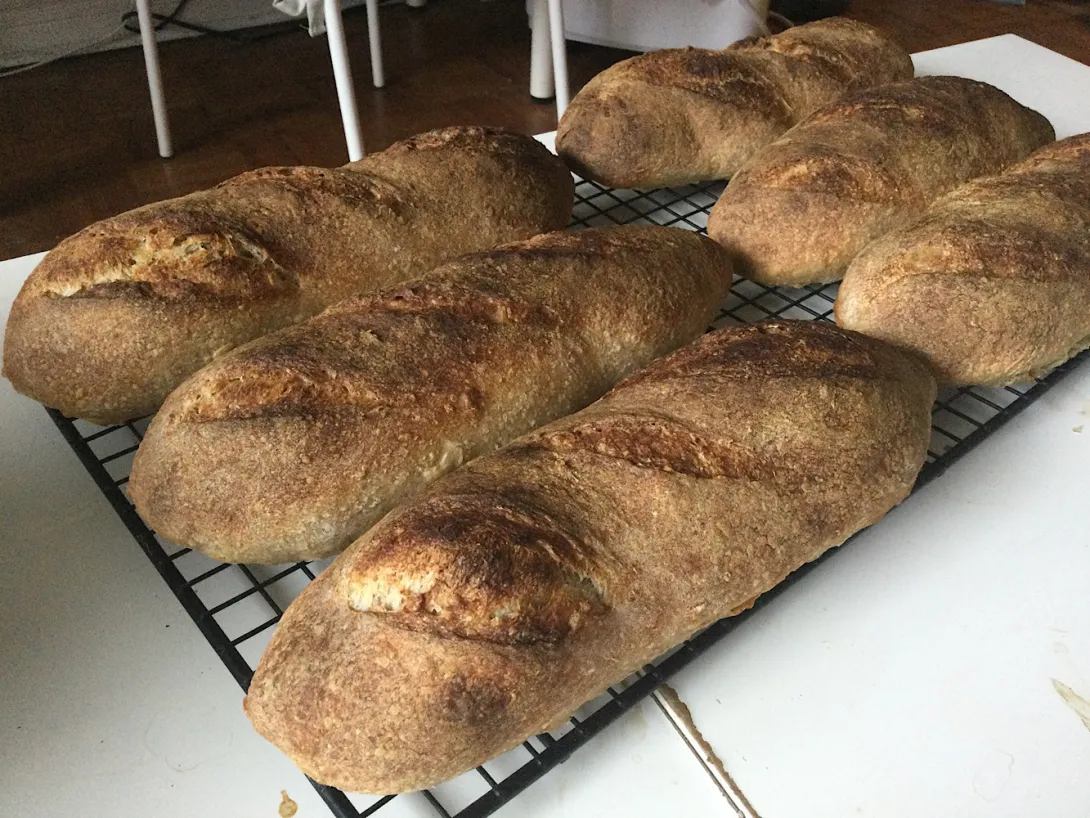
Pumpernickel Yudane
I decided to try a pumpernickel yudane sourdough baguette.
- pumpernickel means freshly-milled whole grain rye kernels
- yudane means a process of gelatinizing a portion of flour and mixing it into the dough. The portion is 20% of total flour weight with an equal weight of boiling water mixed in, then left to sit overnight. Gelatinizing the dough helps soften all the bran in fresh milled kernels, and gives a moist, creamy texture and soft chew
- baguette means my low-fi version of Maurizio Leo's sourdough baguette, made in half lengths
My yudane is 100% freshly ground whole rye kernels. The rest of the dough is Canadian All-Purpose flour.
This is the third in my series of yudane experiments. I previously used toasted buckwheat, and before that, milled wheat. See the links below.
https://www.thefreshloaf.com/node/69147/yudane-toasted-buckwheat-sourdough-baguette
https://www.thefreshloaf.com/node/69116/yudane-milled-wheat-sourdough-baguette
Making the Yudane
I sourced rye kernels from Yu Pik, a packaged brand sold in 1 kilo portions on Amazon, where I have free shipping. I ground the kernels in my Porlex manual coffee grinder on its finest setting. I added boiling filtered water, folded it in, covered in plastic and left on the counter overnight. I then put it in the fridge for an additional 24 hours to see what effect an extended time might have. I have nothing to report there... would have to try a short and long and then compare.
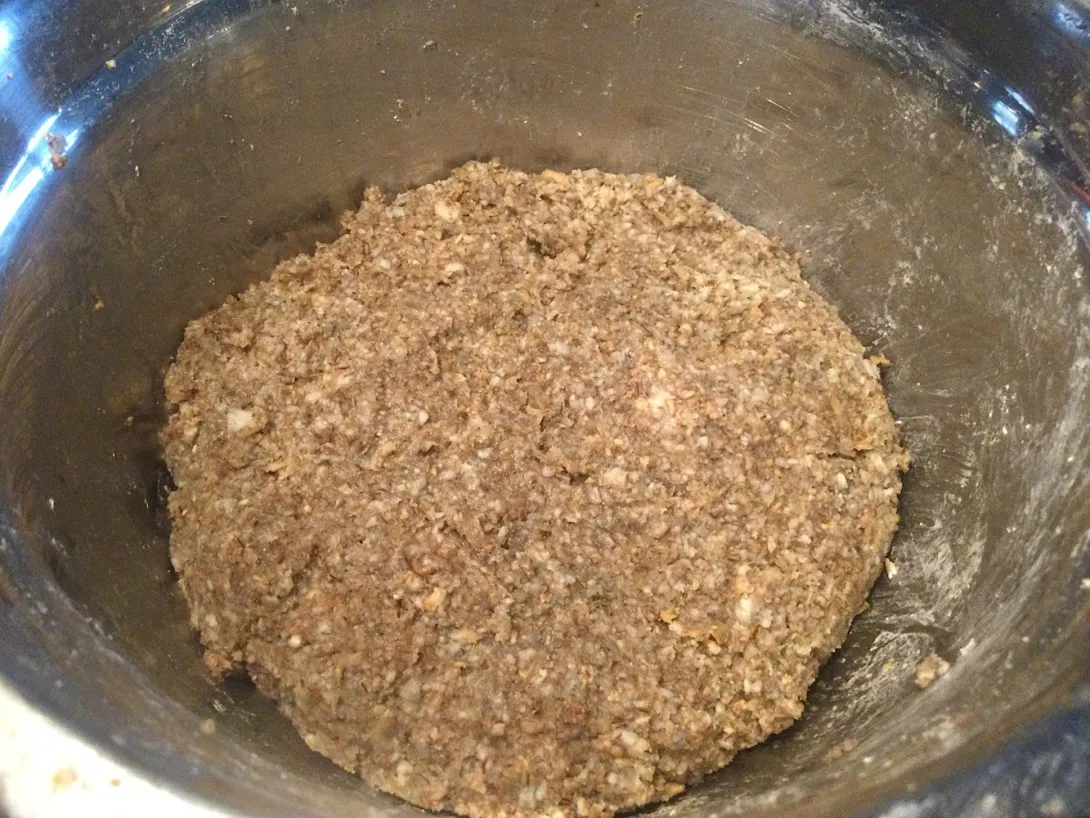
My dough consisted of three main parts: a 30 minute autolyse of all purpose flour, a 100% hydration dark rye flour levain, and the freshly-milled rye yudane. NOTE: I reduced water by 100ml with no noticeable effect on the crumb... but the dough was less slack and easier to work with.
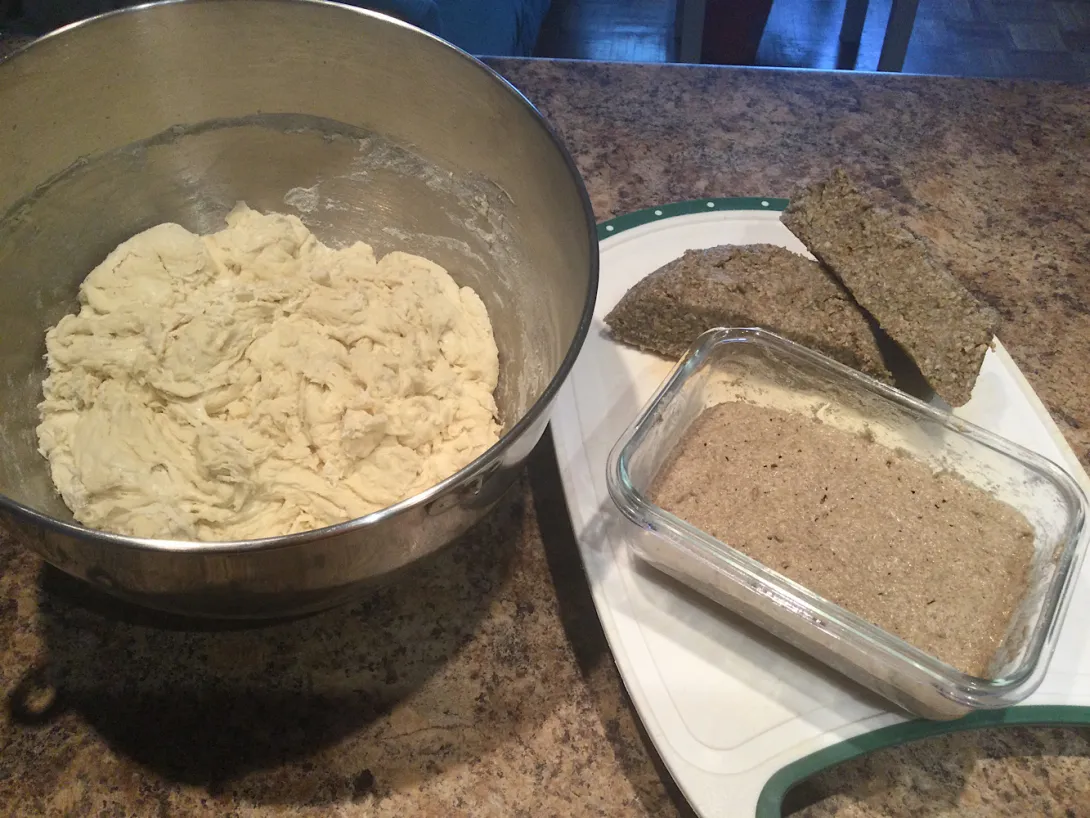
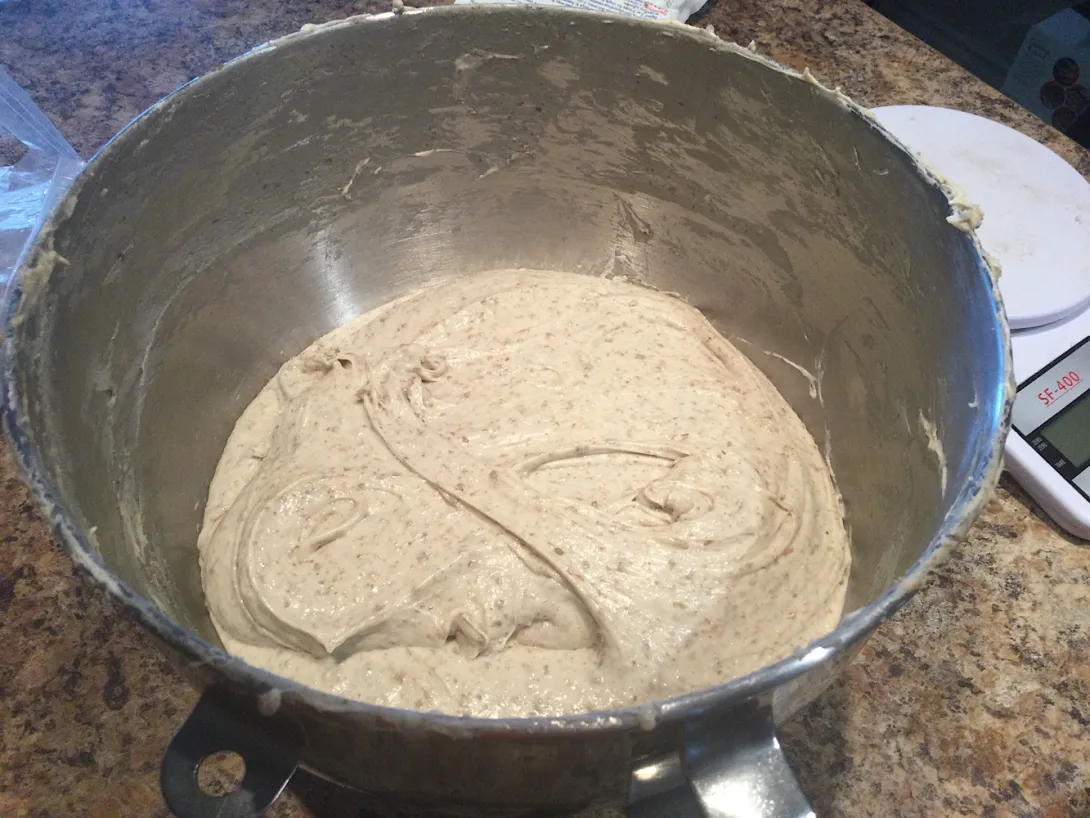
Next morning, you can see how much the dough grew during retarded fermentation in the fridge.
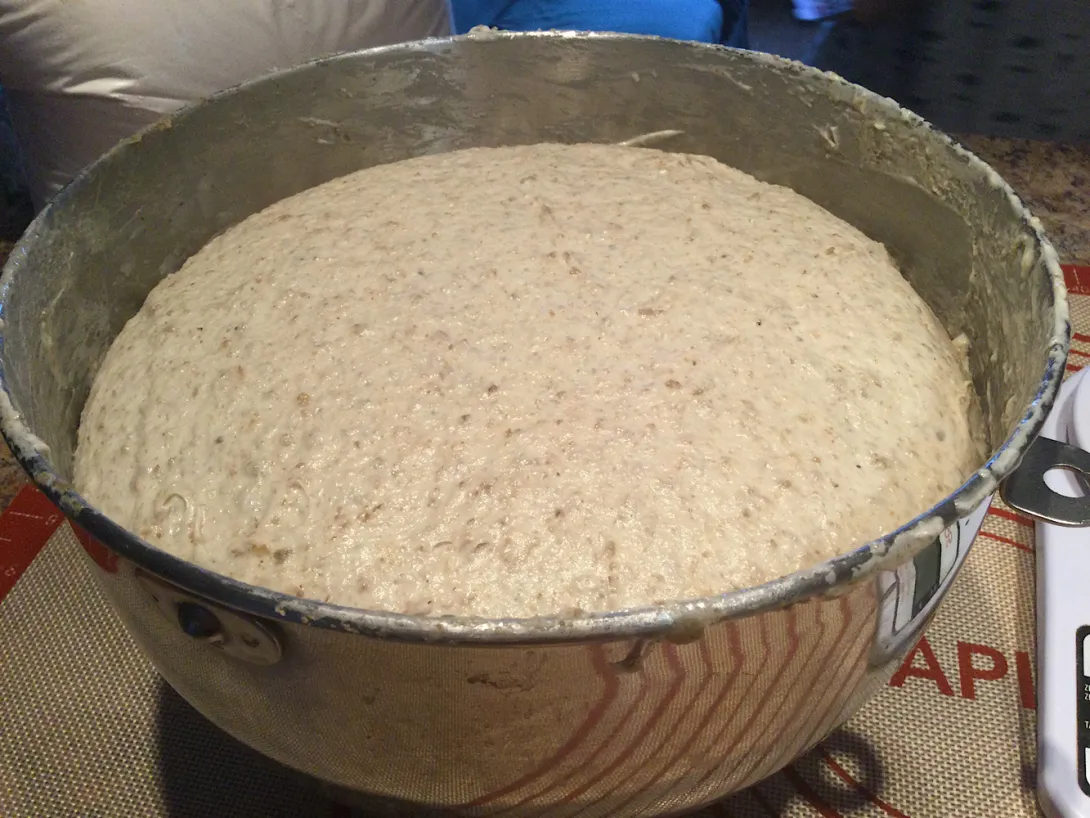
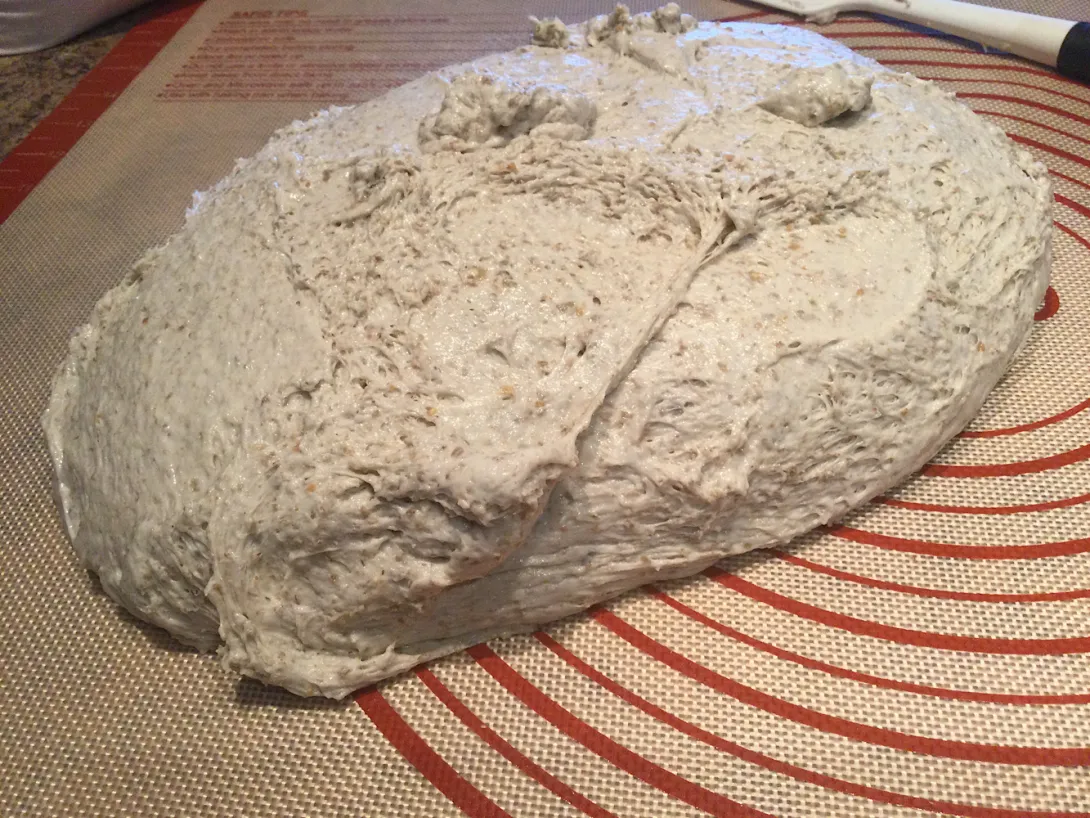
Loaves, Crumb, Texture, Taste
Here you can see the finished loaves. They look lighter than I expected.
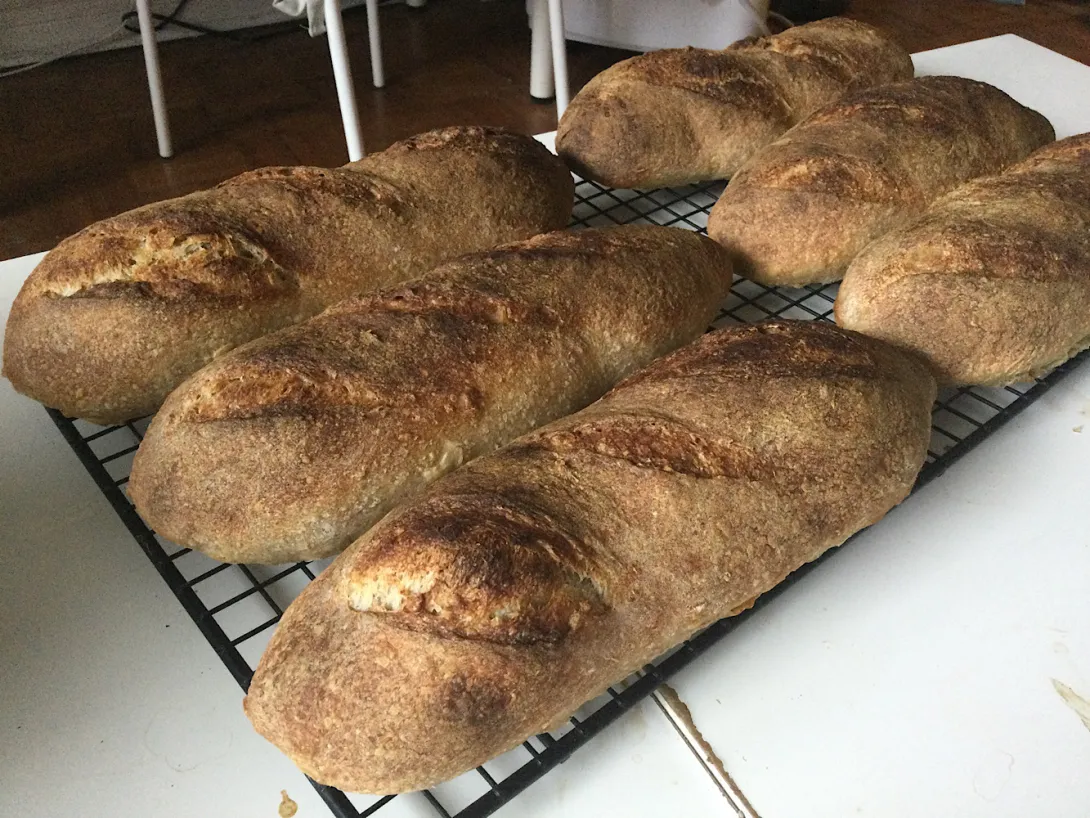
I've noticed that the two fresh-milled flour yudane versions of my baguette have a more creamy texture than the buckwheat flour version. 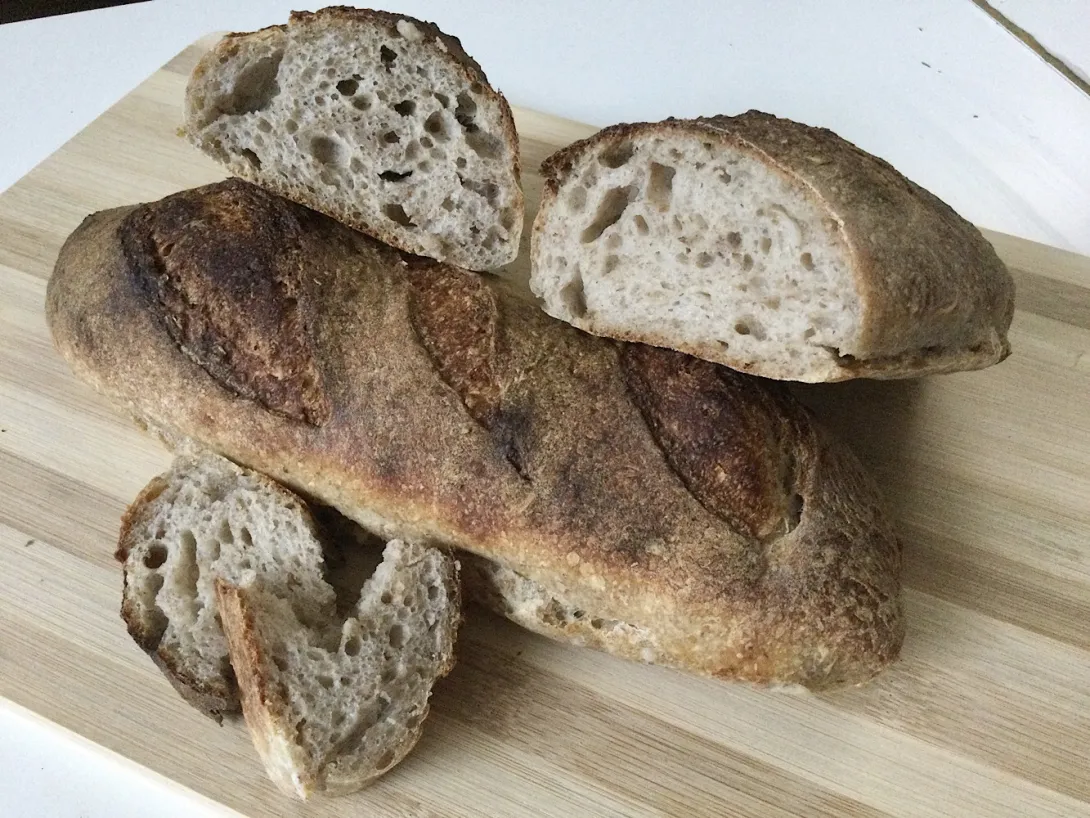
- happycat's Blog
- Log in or register to post comments
UPDATE: as toast in an open faced sandwich, this bread was delicious. I'm not sure how to describe it. The rye was there as a gentle but tasty aromatic, back of the throat flavour. It reminded me of when I started roasting my own coffee. My wife described my coffee as "alive"... the multidimensionality of the flavour and aroma experience. I feel like that is what I am experiencing here even though the fresh milled yudane rye is only 20%.
It's quite exciting. I look forward to incorporating more fresh milled grains.
I am thinking to use the yudane for several ourposes going forward:
So I would mill rye and spelt/ farro
Add bran from spelt/farro to rye
Yudane the rye + bran
Keep farro/spelt flour in fridge
Then 24-36 hrs later make dough
Hard to beat a bread made with freshly ground rye.
Paul
True. Made some rye malt this weekend and looking forward to playing with it, too.